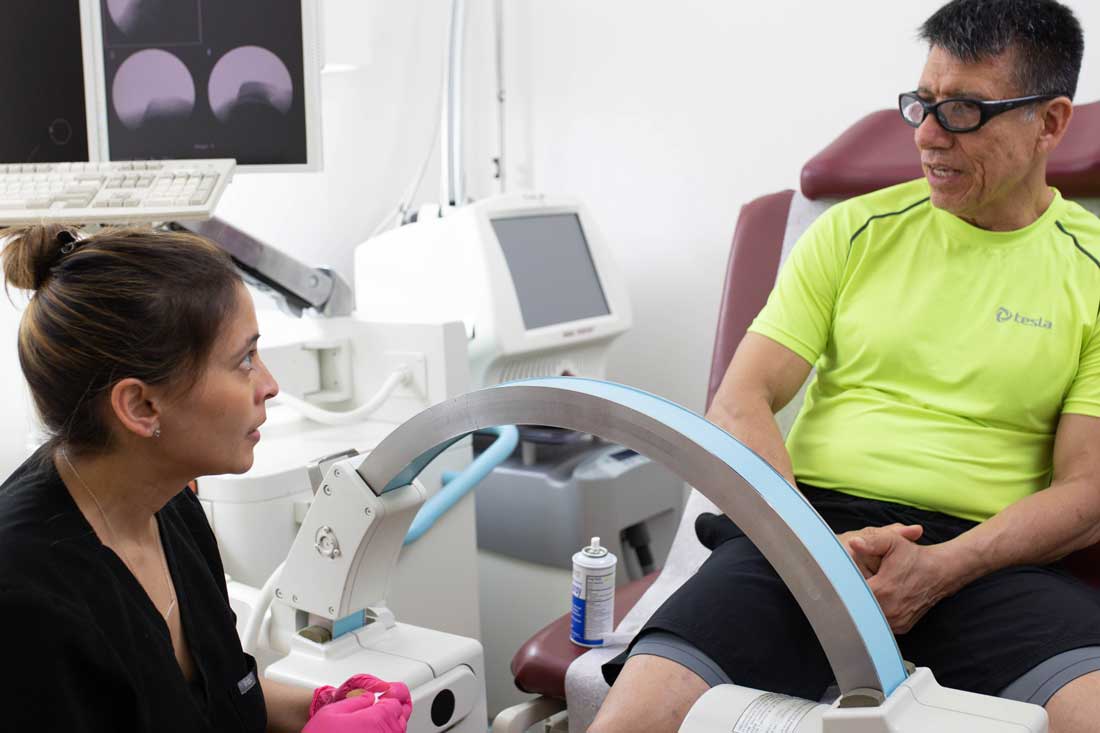A medical consultation is often enough to diagnose restless leg syndrome (impatience). Sometimes additional exams are needed. The Best Treatment For Spider Veins On Legs is based on simple actions and a healthy lifestyle. Medications can help treat the symptoms and / or their cause.
Restless legs syndrome (impatience): the medical consultation
The doctor asks you first about your symptoms (intensity, circumstances of occurrence, frequency, evolution, etc.) He also asks you if these signs affect your sleep, your daytime vigilance (episodes of falling asleep during the day ) and your mood ( fatigue, depressive episodes).
Then, the practitioner asks you about:
- Possible cases of restless legs syndrome in your family;
- Your personal medical history (e.g. diabetes, chronic kidney failure)
- The treatments you are taking (certain medications prescribed or taken as self-medication may trigger or aggravate symptoms).
Finally, the doctor examines you.

In general, this first consultation is sufficient to confirm the diagnosis of restless legs syndrome. However, your practitioner may also prescribe:
- A blood test to check your blood iron levels;
- A sleep recording, to better understand the effects of restless legs syndrome on your nights;
- A consultation with a neurologist (specialist in diseases of the nervous system) or a specialist in sleep disorders. These can indeed provide a medical care better suited to your case, if necessary.
Once the diagnosis is made, your doctor informs you about the disease and Laser Treatment for Spider Veins on Legs, its fluctuating nature with periods of lull and possible aggravation that may require therapeutic adaptations.
Restless legs syndrome (impatience): what treatment?
In order to choose the best Spider Vein Treatment Options, the doctor measures the intensity of your restless legs syndrome.
It uses for this a precise evaluation scale (so-called "light", "moderate", "severe" and "very severe" forms), based on:
- The nature of your symptoms;
- Their impact on your mood and on your social, family and professional life.
A healthy lifestyle and in some cases, a drug treatment, can reduce the signs of the syndrome.
In light forms, simple actions and the adoption of a healthy lifestyle are generally sufficient to reduce impatience. These hygiene measures are, however, indispensable in the more serious forms of the disease.
In severe forms, which cause significant disruption of sleep or impact on the quality of life and if the measures taken in daily life prove to be insufficient, your doctor may prescribe a drug of the family of dopamine agonists. These products compensate for the lack of dopamine (a substance that allows the transmission of information in the nervous system), which promotes the appearance of restless legs syndrome.
- In case of intermittent manifestations, treatment is taken during episodes of restless legs syndrome. It can also be indicated as a preventative.
- If the symptoms are regular and frequent, the drug intake is continuous.
Side effects are possible: nausea, vomiting, low blood pressure, daytime sleepiness , hallucinations and rarely behavioral disorders. To avoid them, dopaminergic drugs are prescribed in moderate doses, gradually increased.
This treatment is only symptomatic. Indeed, there is still no drug for the cure of restless legs syndrome.
These drugs are not reimbursed by the Health Insurance as part of this disease.
No comments:
Post a Comment